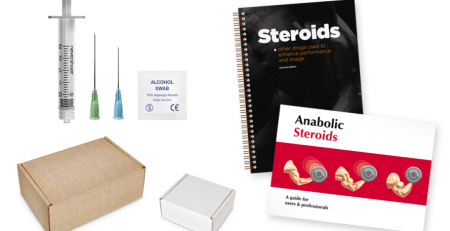Anabolic steroids and their impact on cholesterol levels
Introduction:
Anabolic steroids have long been wrongly associated with their potential negative effects on cholesterol levels. However, emerging research suggests that certain types of anabolic steroids can have a positive impact on lipid profiles. In this blog post, we will explore the relationship between anabolic steroids and cholesterol, highlighting the potential positive impacts of specific steroids on lipid profiles.
Understanding Cholesterol and Lipid Profiles:
Cholesterol is a vital substance in the body that plays a crucial role in various physiological processes. Despite this, an imbalance in cholesterol levels, namely high levels of low-density lipoprotein (LDL) cholesterol and low levels of high-density lipoprotein (HDL) cholesterol, can increase the risk of cardiovascular disease.A good lipid profile is essential for overall cardiovascular health.
Selective Androgen Receptor Modulators (SARMs):
SARMs are a form of anabolic steroid that has attracted interest for their potential to lower cholesterol levels. Research suggests that certain SARMs, such as Ostarine (MK-2866), may have a favorable effect on lipid profiles. These substances have shown the ability to increase HDL cholesterol levels while minimizing the negative impact on LDL cholesterol.
Improved Lipid Metabolism:
The positive impact of some anabolic steroids on cholesterol levels can be attributed to their effect on lipid metabolism. Some steroids have been found to enhance the metabolism of lipids, leading to increased clearance of LDL cholesterol from the bloodstream. This improved lipid metabolism helps maintain a healthier cholesterol balance, reducing the risk of cardiovascular diseases.
Exercise and Lifestyle Factors:
It is important to note that the potential positive impact of anabolic steroids on cholesterol levels is influenced by exercise and lifestyle factors. Regular exercise, paired with a nutritious diet, might improve the beneficial effects of these steroids on lipid profiles even more.
Exercise has been demonstrated to promote overall cardiovascular health by increasing HDL cholesterol. Therefore, incorporating exercise and adopting a healthy lifestyle are crucial when considering the potential benefits of anabolic steroids on cholesterol levels.
Individual Variations and Monitoring:
It is critical to understand that the impact of anabolic steroids on cholesterol levels can differ between individuals.Factors such as genetics, pre-existing medical conditions, and other medications being taken can influence the response to anabolic steroids.
Regular monitoring of cholesterol levels is essential to ensure any potential adverse effects are detected early. This monitoring allows for necessary adjustments to the dosage or discontinuation of steroid use if needed.
Conclusion:
While anabolic steroids are often wrongly associated with negative effects on cholesterol levels, certain types of these steroids, such as selective androgen receptor modulators (SARMs), have shown potential for a positive impact on lipid profiles.
These substances may increase HDL cholesterol levels while minimizing the negative impact on LDL cholesterol. Furthermore, incorporating exercise and adopting a healthy lifestyle are important factors in optimizing the potential benefits of anabolic steroids on cholesterol levels.











Leave a Reply